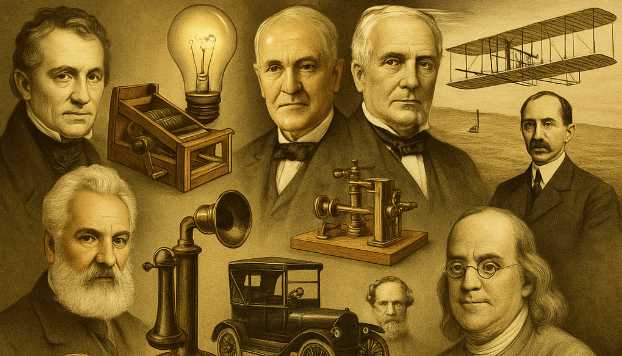America was built on grit, sweat, and a deep-rooted belief that hard work pays off. From the earliest settlers who braved the frontier to the modern entrepreneurs disrupting industries, the DNA of the American worker is woven with determination and drive.
Compared to workers in many other developed nations, Americans routinely clock more hours per week. According to the OECD, the average American works over 1,750 hours annually—more than workers in Germany, France, and even Japan. But it’s not just about the job. Many Americans pour that same industrious energy into their personal lives—building furniture, tending gardens, coaching youth sports, and volunteering in their communities. There’s a cultural compulsion here not just to stay busy, but to remain productive.
This ethos is particularly potent among entrepreneurs. In fact, entrepreneurs often embody a “double dose” of this work ethic. While the average person might stop thinking about work after clocking out, the entrepreneur’s brain never really shuts off. They’re the ones who spend weekends attending workshops, reading business books, listening to industry podcasts, or strategizing about the next big idea. Even in retirement, many find themselves consulting, starting new ventures, or investing in others’ ideas—not because they have to, but because they love the hustle.
I’ve never met a successful entrepreneur who was content being idle. True entrepreneurs aren’t just chasing profits—they’re building, creating, and improving. For them, work is not a chore; it’s a calling.
This tireless spirit is more than personal. It’s national. America’s economic dominance has been fueled by generations of entrepreneurs—from Henry Ford to Elon Musk—who dared to challenge the status quo, disrupt markets, and create jobs. The ripple effects of their ambition are what built our economy and defined our global leadership.
But here’s the thing: if we want to remain a global leader, we can’t let that entrepreneurial fire die out. We need to nurture it in our schools, communities, and homes. That means exposing our kids to entrepreneurial thinking, encouraging curiosity, and celebrating effort and innovation, not just outcomes.
Let’s also remember that entrepreneurship isn’t limited to tech startups or million-dollar exits. It’s the small-town bakery that becomes the local hangout. It’s the mom who turns her side hustle into a full-time gig. It’s the veteran who starts a nonprofit to help others transition to civilian life. These stories, though less flashy, are no less heroic. They embody the same principles of hard work, perseverance, and creativity.
So the next time you look in the mirror, ask yourself:
What role do I play in this grand story? Do I see a builder, a fighter, a contributor to our country’s greatness? Or am I sitting on the sidelines, wishing I had what others earned through sweat and sacrifice?












